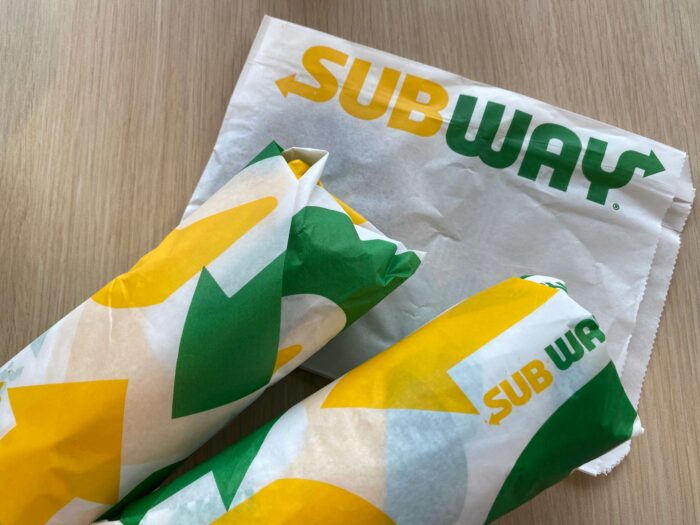Top Class Actions’s website and social media posts use affiliate links. If you make a purchase using such links, we may receive a commission, but it will not result in any additional charges to you. Please review our Affiliate Link Disclosure for more information.

Update:
- A judge has dismissed a class action lawsuit that accused Subway of sending unsolicited marketing messages to potential customers with an autodialer, in violation of the Telephone Consumer Protection Act.
- On July 17, a Connecticut federal judge threw out the claims against the sandwich giant, ruling that the equipment used to send the messages didn’t qualify as an “autodialer” under the U.S. Supreme Court’s recent reading of the term.
- The plaintiff had filed the class action lawsuit after allegedly receiving two unwanted text messages made by an autodialer, offering a free bag of potato chips.
- However, U.S. District Judge Jeffrey A. Meyer Judge Meyer found that the software Subway used to contact her—as described in her complaint—would not be classified as an autodialer as laid out by the Supreme Court in its unanimous April 2021 ruling on Facebook v. Duguid.
(June 16, 2021)
International sandwich chain Subway cannot send a class action lawsuit it is facing for sending unwanted text messages into arbitration because it did not make its arbitration clause conspicuous, the Second Circuit has ruled.
U.S. Circuit Judge Joseph F. Bianco wrote in the ruling that “under California law, [Marina] Soliman is not bound by the arbitration clause contained in the terms and conditions at issue,” Law360 reports, adding that the clause was not made conspicuous by the company.
Marina Soliman filed the class action lawsuit against Subway in 2019, after the company ignored her requests to stop sending her promotional text messages.
According to the class action lawsuit, Soliman texted Subway a keyword in 2016 after seeing on an in-store advertisement that doing so would give her access to coupons.
The sandwich company did text her coupons, but continued to send unwanted promotional material, the claim states, adding that Soliman requested the company to stop.
However, according to the class action lawsuit, her request was ignored.
Subway attempted to move the case to arbitration, saying that the advertisement Soliman saw included a link to the company’s website and reference to the terms and conditions on the site. However, U.S. District Judge Jeffrey A. Meyer ruled that the advertisement did not make clear the consumer was agreeing to such terms, Law360 reports.
The recent ruling supported Meyer’s decision, with a three-judge panel saying that: “A combination of barriers relating to the design and content of the print advertisement, as well as the accessibility and language of the relevant website itself, leads us to conclude that the terms and conditions were not reasonably conspicuous under the totality of the circumstances.”
The panel said that the reference to terms and conditions “was buried on the advertisement in a paragraph that was printed in significantly smaller font relative to the other text on the advertisement, and the reference itself was surrounded by a substantial amount of unrelated information.”
The panel concluded that, “a reasonable consumer would not realize she was being bound to such terms and conditions by sending a text message to Subway in order to begin receiving promotional offers,” Law360 reports.
Now, the class action lawsuit, suing for violations of the Telephone Consumer Protection Act, will return to the lower court for further proceedings.
One of Soliman’s attorneys, Brenden P. Leydon of Wocl & Leydon LLC, told Law360 in an email that the team was very happy that the Second Circuit agreed with Meyer and “that our client did not agree to any arbitration provision.”
“This case helps further protect other consumers from being unwittingly bound to an unfair arbitration provision they had no fair notice of.”
In 2019, Subway was hit with a separate class action lawsuit for unwanted text messages, with lead Plaintiff Malka Fishman saying that Subway sent “free sub” text messages to her without their permission in violation of the Telephone Consumer Protection Act.
Have you ever received an unwanted text from Subway? Let us know in the comments section!
Circuit Judges Dennis Jacobs, Rosemary S. Pooler and Joseph F. Bianco sat for the Second Circuit panel.
Soliman is represented by Brenden P. Leydon of Wocl & Leydon LLC and Todd M. Friedman and Adrian R. Bacon of the Law Offices of Todd M. Friedman PC.
Subway is represented by Ian C. Ballon, Lori Chang and Brian T. Feeney of Greenberg Traurig LLP.
The Subway Unwanted Texts Class Action Lawsuit is Soliman v. Subway Franchisee Advertising Fund Trust Ltd., Case No. 20-946, in the U.S. Court of Appeals for the Second Circuit.
Don’t Miss Out!
Check out our list of Class Action Lawsuits and Class Action Settlements you may qualify to join!
Read About More Class Action Lawsuits & Class Action Settlements:
- Subway Class Action Says Chicken Packed With Non-Chicken Fillers
- Do You Qualify: Wrong Number Robocalls, Text Messages | Business & Debt Collector Lawsuit Investigation
- Subway FACTA Class Action Lawsuit Should Be Appealed, Defendant Says
- Do You Qualify: Text Message Spam, Pre-recorded Messages, Telemarketing Calls Class Action Lawsuit Investigation















66 thoughts onSubway class action over unsolicited spam texts dismissed
Add me please
Add me
Add me
Add me
Please add me to this class action against SUBWAY case 20-946. Thanks !